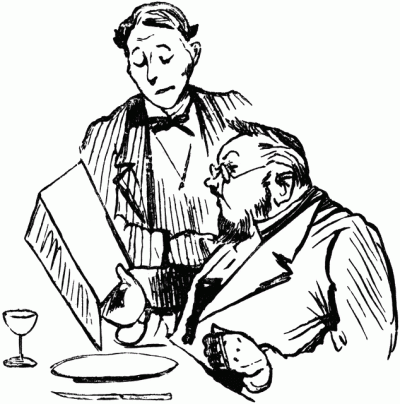The Most You Leave Is 14 Percent?

When I saw the tip recently left by a man who paid his dinner bill with an AmEx black card, I was furious.
“Are you kidding me?” I thought. “To get one of those cards you need to spend at least $250,000 annually and the most you leave me is 14 percent? What happened to Reaganomics and the trickle-down effect — aren’t all you rich, old white guys Republicans?”
A common refrain in my restaurant is, “Tipping isn’t required. They don’t have to leave you anything.” The implication being that I should shut up and be grateful for what I do get. Uh-uh, nope. Not me. I work so hard for so many hours.
When I receive a tip of less than 18 percent I do not think, “Oh what did I do wrong?!” Instead, I mentally curse the profession I have chosen and the system that allows strangers to determine my weekly income.
I, like many other servers, get a paycheck of zero nearly every week. This is because, in America, the federal minimum wage for a server making tips is $2.13. All the taxes from my declared tips come out of that paycheck, and I still have to pay a sizable chunk in April despite the mean annual wage for waiters and waitresses in the state of New York being $20,710, according to the Bureau of Labor Statistics.
Hypothetically, if you and everyone else decide not to tip me, the restaurant is required to cover the difference and pay me minimum wage, a whopping $7.25 an hour. That comes out to $290 before taxes for a 40-hour week. If no one tipped me for an entire month there’s no way I could make rent, pay for gas, groceries, medical expenses (since my job does not come with benefits), or other necessities.
Len Penzo, writing in The New York Times in June, saw the tipper-server relationship as an educational opportunity: “When properly administered, tips provide accurate performance feedback to the server, which is why restaurants that implement a mandatory-gratuity or no-tipping policy — regardless of the level of service — end up doing everyone a big disservice.”
He went on: “Think about it. Why would any server go out of his way to give excellent service when he knows he’ll be getting the same pay regardless of whether he busts his hump or takes it relatively easy by doing just enough to meet the minimum standards?”
Excuse me, what? Why would I even attempt to perform my job duties in a professional manner if I have the security of knowing I’m going to be paid no matter what? Does no one realize how messed up this is, let alone insulting? Were I to be paid a salary plus benefits by my restaurant the only people who would be at risk of having “an unsavory dining experience” would be the ones who are rude, condescending, and treat me poorly.
The only “performance feedback” I glean from the amount of the tip is whether or not the customer is cheap.
In “Dishing It Out: Power and Resistance among Waitresses in a New Jersey Restaurant,” Greta Foff Paules wrote, “It may already be apparent that the waitress views the customer not as a master to pamper and appease but as a substance to be processed as quickly and in as large a quantity as possible. . . . If the customer is perceived as material that is processed, the goal of this processing is the production or extraction of a finished product: the tip . . . low tips and stiffs are not interpreted as a negative reflection on the waitress’s personal qualities or social status. Rather, they are felt to reveal the refractory nature or poor quality of the raw material from which the tip is extracted, produced, or fashioned.”
Here’s what I am thinking as I present someone with the bill: “Long ago, before you sat at a table in my section, the stars aligned and your capacity to be generous was formed. There is very little I can do to change how giving you decide to be.”
I receive far more poor-to-mediocre tips than my excellent service should elicit, according to Mr. Penzo. If people are really tipping based on performance, then I just don’t know. Maybe I should not refill those empty water glasses, maybe I should ignore guests when they yell at me across the dining room, maybe I shouldn’t make suggestions when they ask what’s good to order, maybe I should not care about doing my job well and then my tip percentage would improve?
In a nutshell: 18 percent minimum please, and that is on the total bill, including tax, thank you very much.
